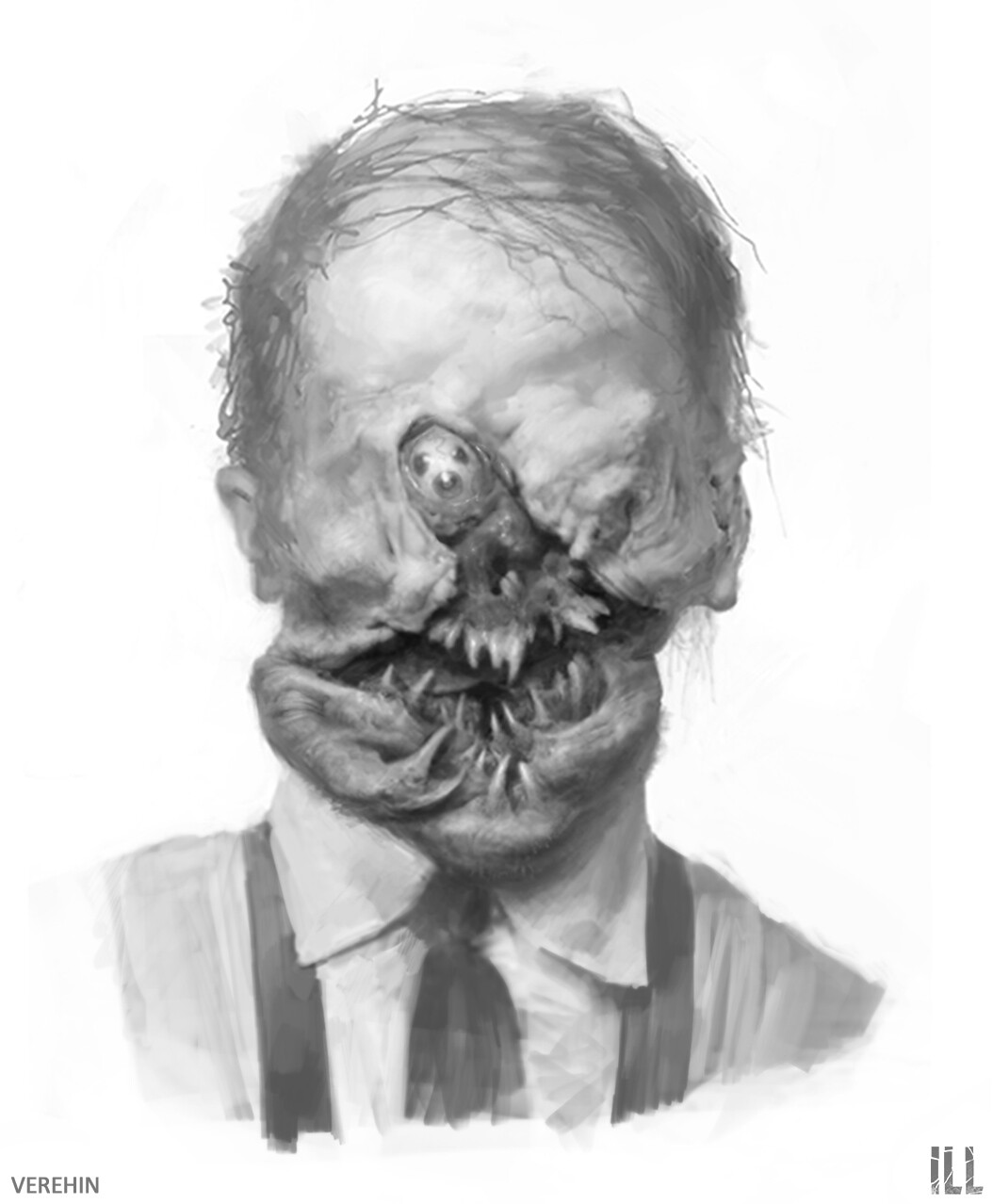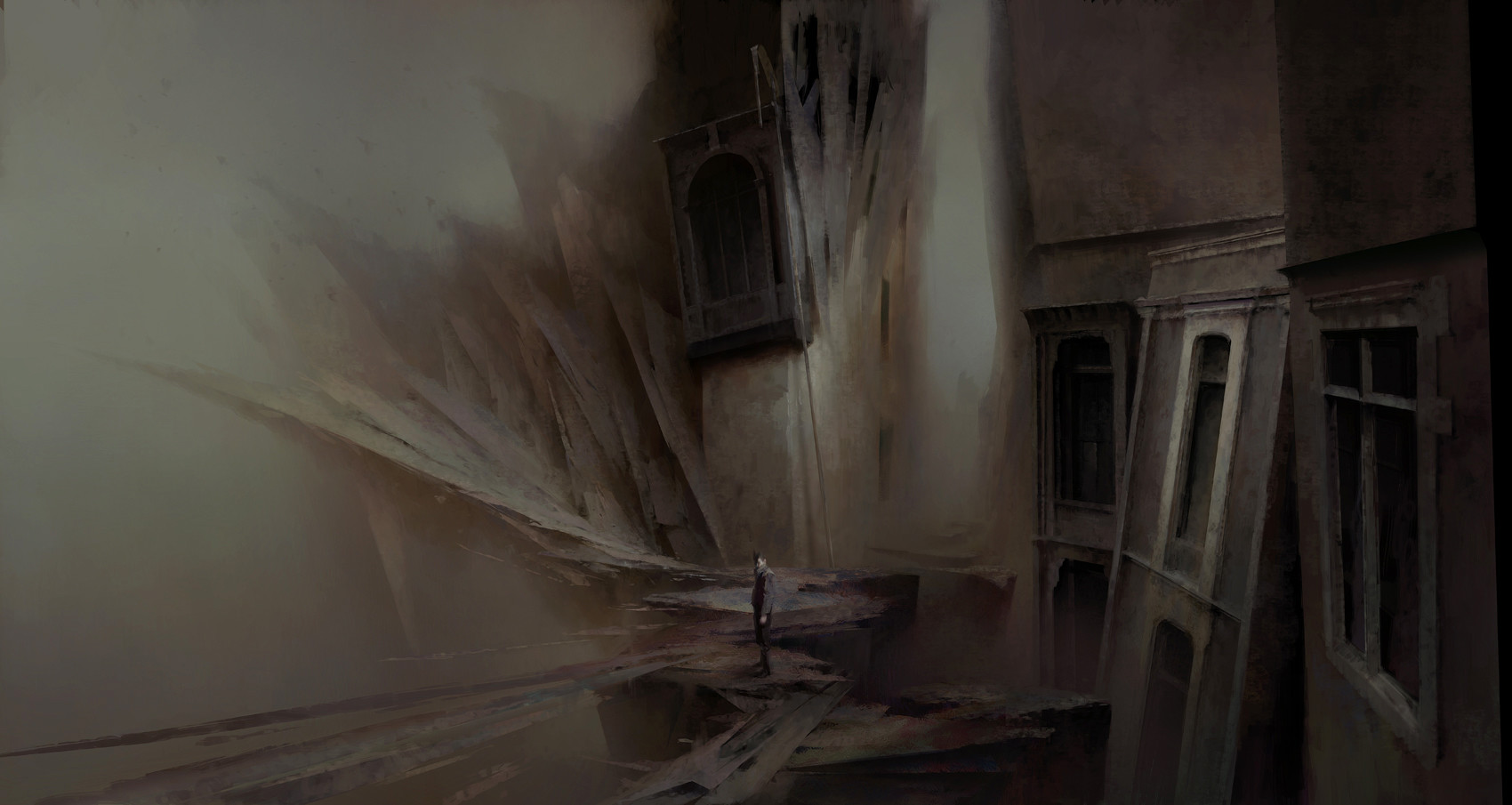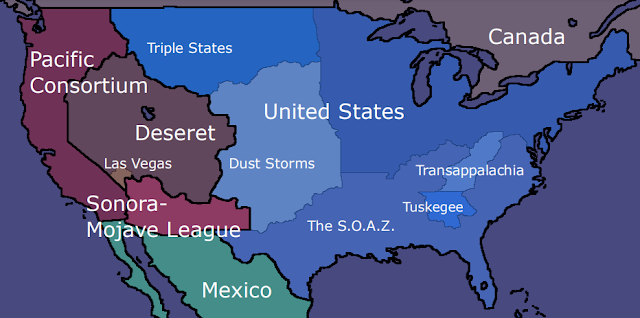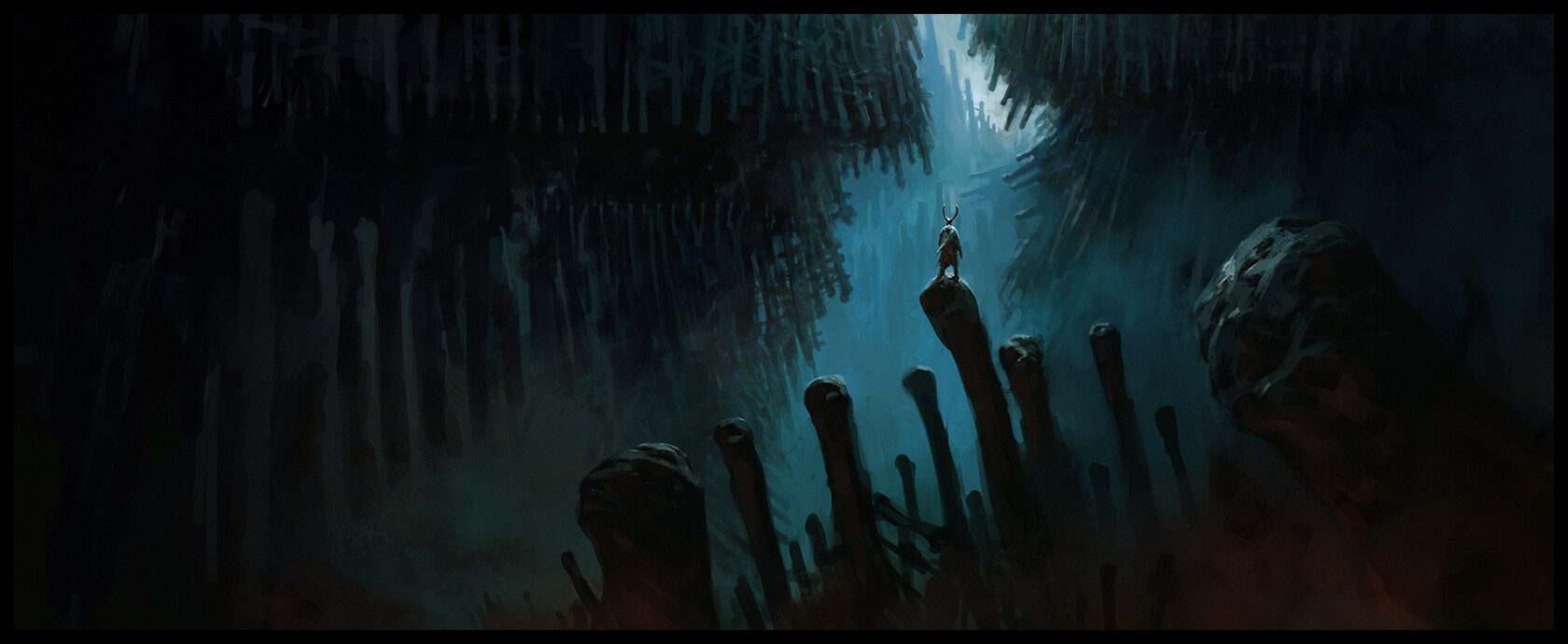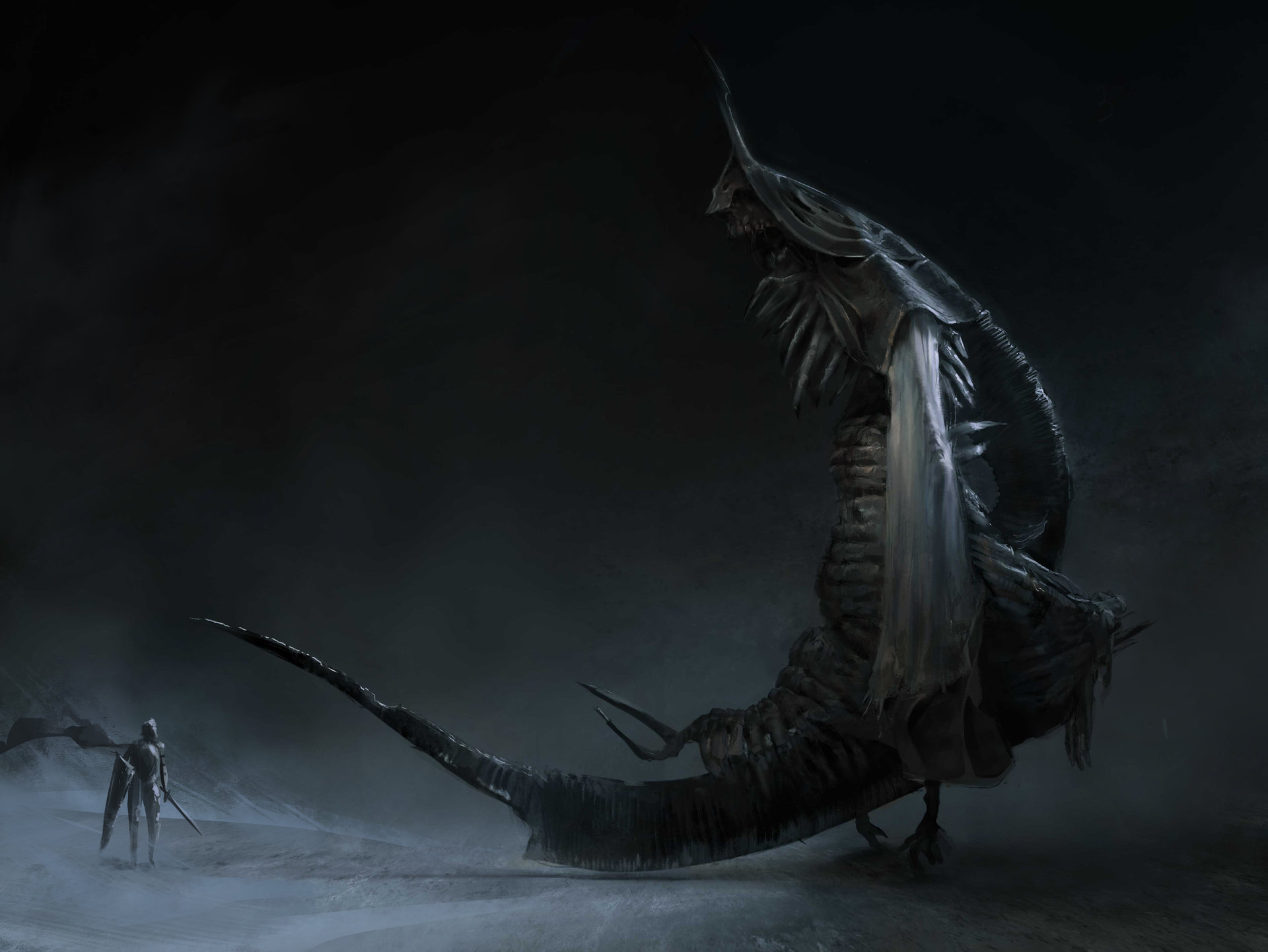I was thinking about Barotrauma (a game I haven't played) and realized it would go well with Mothership (another game I haven't played).
 |
| Link |
Setting Background - The Solar System - 2086 AD
It's the early days of space colonization. The Earth's biosphere is in ruins following a limited nuclear exchange in the early 2030s, and the compound effects of centuries of mismanaged climate. Everyone has a personal respirator. Food's grown in hydroponics facilities and bacteria vats.
In the 2040s, space travel was made profitable through the perfection of hyperspace-gates, allowing heavy cargoes to be transported in a matter of months rather than years. Their construction and use is managed by Kosei International (K-Int), a highly-diversified corporate conglomerate which acts as a proxy for the Japanese government, the predominant terrestrial power of the post-war era.
Off-world resource-exploitation is the domain of K-Int associate-enterprises, and typically revolve around the extraction of H-3, carbon-fuels, and rare minerals. Populations are confined to relay stations and company outposts, populations numbering in the hundreds at the most. There are also a smattering of hyper-rich pleasure-arcologies and aspirant utopias, bankrolled by people with more money than sense.
The exception to all this is Calypso, a near-Earth-sized planet, an anomaly discovered in the Kuiper Belt towards the end of the hyper-gate boom. It's surface is coated in a layer of anti-reflective sediment, which combined with its distance (nearly a thirteen-month journey from Earth), concealed the planet from telescopic imagery until 2052.
Calypso - Under the Frozen Sea
Like Europa and its analogs, Calypso is composed of a sheets of ice covering an enormous subterranean sea. What's different is that the sea is inhabited.
Calypso possesses of an immense biosphere full of sophisticated lifeforms, many of them with parallels in Earth's own ocean. More importantly, they're safe to eat.
The early years of Calypso's colonization saw an immense surge of ramshackle fishing expeditions, penal colonies, and homesteaders, all seeking their slice of the new world. Calypso provides. Calypso sustains. The population hit two million in 2080, mostly concentrated around the planet's interlocking weaves of warm-water currents, energized by the discharge of volcanic vents. A whole generation of humanity's been born never knowing the light of the sun, nor feeling of earth on their feet.
Calypso's no paradise. It's cold and dark and wet, luxuries and elbow-room are scarce, and the recycled air stinks of mold. But calories are plentiful, labor is valuable, and far away from the capitalist core, some may achieve a semblance of freedom.
 |
| William Tomasi |
The HANSE - Hvallund-Aaser Corporation
In 2061, the Hvallund-Aaser ships started to arrive. Granted an exclusive fifty-year charter to use the K-Int's Kuiper-Belt hyper-gate for colonization purposes, on paper Calypso belongs to them. Realistically, they're just the latest group of cutthroats that's decided to make their fortune on the solar system's blackened rim.
Hvallund-Aaser Nautical Systems Enterprises was formed from a compact of futurists, scientists, and heavy-industry investors with two goals: to achieve a monopoly-of-force on Calypso, and to unlock the secrets of the Bios (more on that later).
The HANSE is well-funded, professional, and dominated by the kind of psychotic greed that gets things done. They're also a pressure-cooker of internal rivalries, hastily-made decisions, and cut-corners. They're trillions of dollars in debt to K-Int and thirteen years behind schedule. The first wave of planet-side executives have already been arrested, forced into exile, or slaughtered by mutineers.
On Calypso, Hvallund-Aaser fulfills the role of the "Company" prescribed by Mothership. K-Int is more background-lore, a bigger bad beyond the typical scope of a campaign.
CLF - The Calypso Liberation Front
Where there are tyrants, there will always be tyrant-killers. The Calypso Liberation Front is a network of freedom-fighters and terrorists (depending on your propaganda of choice) hellbent on throwing HANSE back into the hole they crawled from.
With a common foe, the thousand independent enclaves of Calypso have begun to unite. CLF warlords span every section of any political graph you want to use. The dominant ideology, if there is one, is a kind of Calypsan-nationalism, with conscious efforts made at cultural-mythmaking towards the development of the first genuine non-Earth state.
CLF has a strong following among the planet's youth, those born on the sunless sea. Some have adopted a kind of nascent bigotry towards the Earth-born. Life on Calypso represents a break from humanity's sordid past, an opportunity to do things differently, free from the infection of terrestrial decadence.
The CLF is always in need of more operatives, disposable or otherwise. Join the cause. Kill a corpo today.
The Bratva - Kuiper Belt Syndicate
They've been here long before Hvallund-Aaser, long before Calypso's discovery, bringing the first shipments of booze and drugs to the Kuiper Belt's scattered stations.
Their ratlines run straight through K-Int's hypergate security, money greasing the right palms, debts forced upon the right middle-management. Rumors persist that they operate homemade pirate-hypergates of their own. If they do, their coordinates are a secret known only to the upper echelons.
They deal with both sides of the HANSE-CLF conflict, seeking to prolong the chaos for fun and profit. Hvallund-Aaser made some initial attempts at rounding the bastards up, but their presence has proven far too useful in filling holes in the company's logistical and wetwork requirements.
It's the Russian Mafia, in space (and underwater). If there's any line of work that's half-baked, shifty, or just plane deplorable, the Bratva has a cut.
Veil Monks - The Sophosian Brotherhood
Synth-chants echo through the hatchways. The aroma of vaporized amber. A procession of monks shambles past, their faces hidden by plastic cauls. No other monastic order can claim to have fled the world as they have, leaving Earth entirely behind, along with--some believe--their humanity.
Their founder, St. Sophonius, was branded an apostate, the first cyborg to be martyred during the postwar repressions. They believe that for their souls to reach their fourfold God, their flesh must be amended.
They were cast among the stars, and were the first beings to settle on Calypso. Their knowledge of the seas run deep. It's rumored they're building a proper AGI-core in the depths of their monasteries, eons beyond the shabby ship-computers fabricated by the HANSE.
If you pray with them and make a donation, they may let you borrow some of their cyberware, or grant you passage to hidden fishing grounds.
They're very clearly a cult of freakish metal-men (featuring your favorite Adeptus Mechanicus tropes). And while most on Calypso are atheists, or cling to the vestiges of terrestrial folk-religion, the Sophosians have many lay followers among submarines and the salt-of-the-earth.
 |
| Ben Wanat |
The Bios and the Cnidaria
The Bios is what drew Hvallund-Aaser to Calypso in the first place. Most Calypsans are vaguely aware of it. It's a kind of mystical force sustaining the planet's biosphere. Maybe it's a kind of algae. When the Bios gets angry, it causes mutagenic outbreaks, which result in outposts being cleaned out by nerve gas or blown to smithereens.
Scientists at HANSE black-sites know that the bios is a highly-sophisticated biological parasite. They would call it a microbe, but its much, much smaller. There's some indication that its partially synthetic, and bears signs of intelligent design, but results are inconclusive.
Sometimes when Bios-hosts are subject to high amounts of stress, it causes rapid mutagenic adaption, sublimating the host's neurology in the process. Those few who have been successfully resuscitated report feeling a sense of transcendental peace, which they would very much like to get back to, as soon as possible.
The HANSE is bankrolling a planet-wide boom in whale-analog hunting. Whales infected with Bios provide enough specimen-matter to keep their labs running for years.
And what does everyone want with this alien-aquatic-zombie virus? The key to creating programmable biomatter. A solution to Earth's ruined ecology. The means for planetary terraforming, unleashing swarms of neo-bios to transform Mars into an oasis overnight. A cure for cancer. Exotic pharmaceuticals. A cure for death.
The Cnidaria takes this a step further. They worship the Bios. They're already infected, and would like you to have some too. They're at peace. They hear the voice of the Mother. When we're ready, the Bios will grant us the means to sing and dance beneath the waves. The hypergates will be destroyed. Calypso will be free.
They've infiltrated the HANSE, the CLF, and the Bratva. The Sophosians want nothing to do with proto-squid-people (they're seeking their own brand of transhumanism, featuring chrome and microprocessors), and will pay you handsomely to sabotage any whaling expeditions (ostensibly to protect God's creatures, the whales).
 |
| Ben Wanat |
Great Setting-post, but What do the Players Do?
All the regular Mothership things, but underwater instead of in space. Trade vaccsuits for dive suits. Pilot submarines instead of spaceships. Swap the "Zero-G" skill for "Divecraft." Investigate HANSE stations that have missed their check-in window. Deliver bombs for the CLF. Uncover a Cnidaria cell, and get swept up in an outbreak, with 24 hours before the nerve gas hits.
Marines. Ex-HANSE and CLF mercenaries. Thugs tattooed with the marks of the Bratva. Veterans from Earth's endless police-actions and proxy wars, looking for a new life.
Androids. The first models were made public in the late 2060s, with mass-market production still decades away.
The HANSE has pursued hybrid bio-synthetic designs, featuring experimental hardware and donated organs, piloted by a speed-cloned "human" (?) brain. Each one represents a substantial investment from the company, and is likely either under the thumb or on the run from a corporate patron.
The Veil Monks have Androids of their own, cyborgs who've had all their superfluous biomatter paired away in an effort to resist the passions of the skin, the liver, and the ever-sinful heart. They are cold-steel holy-men, halogen stars of the order, guiding their brethren's way.
All Android characters remain susceptible to Bios infection and the hazards of water-pressure. They aren't built to be waterproof, thus requiring dive suits like any real human. However, they don't require oxygen and are immune to the bends, making them much sought-after for high offices aboard any submersible.
Scientists. Mainly educated in terrestrial universities, or onboard the HANSE's special year-long rapid-training programs, undertaken in-flight from Earth to Calypso. The Veil Monks operate Calypso's own halls of learning, and those they educate are inevitably sympathetic to their mystic ways, if not themselves monks of the order, taking vows of poverty, chastity, obedience, and aversion to the flesh.
Teamsters. The vast masses of Calypso's workforce, those who keep the water-pumps running, and the hydroponics decks parasite-free. Their unions are the most powerful in the solar-system, due to the difficulty in bringing in trained replacement labor en-masse. Rivalries run deep between HANSE and CLF-aligned associations, usually satisfied by union-sanctioned knife-fights.
 |
| Ananyo Chatterje |
Oxygen and Decompression Sickness
As per the Mothership rules, oxygen tanks last 12 hours in prime conditions, or 4 hours if you're engaged in strenuous activity. Diving in Calypso's vanta-black seas counts as strenuous.
Beyond depths of 60 meters, divers require hypoxic tanks, with (ironically) lower oxygen contents than normal. Only those with the "Divecraft" skill can operate normally breathing hypoxic gas, all others suffer [-] on all tasks. If you try to breathe regular oxygen at this depth, suffer 1d5 damage/hour from oxygen toxicity.
Savvy divers know that when shit goes south, its not running out of air you got to worry about, but decompression sickness due to unplanned rapid ascension, also known as the bends. Typically this is the consequence of accidentally hitching a ride on a rampant current, or swimming for your life from deep-sea predators.
New Hazard: The Bends. Make a Body Save or suffer 1d10 damage per 10 meters rapidly ascended, and suffer [-] on all further actions due to gas intoxication (which feels a cross between drunkenness and the flu). If damage from the Bends would result in a wound, instead save versus Death.
A Chart of the Abyssal Depths
Calypsans have divided the seas into depth zones, each progressively more hazardous due to water-pressure, darkness, and local fauna. Schoolchildren know them by heart.
Bioluminescence and blindness are dominant traits in all zones. Many species see in non-visible-light bands, detecting prey based on thermal signatures and yet more exotic radiation.
Upper Nathyal (0-60 meters). Most settlements exist at this depth, clinging to the underside of Calypso's ice-shelfs, where they cultivate upside-down farms of filter-feeding organisms, rooted to the ice.
60m--Cutoff for oxygen-based diving. Hypoxic gas required--
Lower Nathyal (60-100 meters). Sea-life is abundant, yet unlike terrestrial seas, there's no phytoplankton to form the basis of the foodchain, as there's no light to photosynthesize. Calypsans attribute this anomaly to the bios. Most fishing operations operate at this depth.
100m--Cutoff for dive suits. Pressure suits required--
Cetacea (100-1,000 meters). Life becomes less prevalent, dominated by species specialized for the crushing depths, such as jellyfish and squid analogs. Whalers operate at this depth, with their prey seldom descending deeper.
1,000m--Cutoff for pressure suits and standard submersibles. Specialized vessels required--
Bathyal (1,000-4,000 meters). Whale-fall forms the main ecological activity, with lifeforms mainly consisting of detritovores, and the predators that hunt them. Human activity relegate to mining, fuel-extraction, and research operations. The supply-vessels that sustain them are called "Ferrymen," and are the heroes of many-a sea-shanty and nautical tale.
Abyssal (4,000-6,000 meters). Life is rare, clustered around marine vents and the chemosynthetic bacteria that colonize them. Certain Bathyal species-offshoots have been sighted at this depth, adapted to the increased pressure. Wreckers peruse the Abyss for abandoned vessels, not yet picked over by the scavengers of the higher bands.
6,000m--Cutoff for almost all vessels. Venture no further--
Hadal (6,000+ meters). Marine trenches which plummet below the Abyss. Only a handful of craft have ever been built to traverse these depths, leaving the Hadal almost entirely unexplored. The HANSE is very interested in what's going on down here.
 |
| Connor Sheehan |
Weapons for Katabisis
Dive Knife. Stats as "scalpel,' DMG [+]. Typically equipped with a serrated edge for sawing through lines, a curved edge for slicing, and a hook for prying shells open. Veteran seadogs customize their knives with grips, engravings, and glittering finishes. 100cr
Reef Hook. 1d5 bleeding damage [-], adjacent. Used by divers to hang on to reefs and wrecks when assailed by powerful currents. Typically come with 2 to 3 meters of durable line. Those trained in fighting with them can hit enemies at that range, so long as they have enough room to swing it around. 150cr.
Harpoon Gun. 1d5. bleeding, damage, close. 1 shot. Furnished with 6 meters of line, and sticks into whatever unfortunate being is struck with it, inflicting 1 stack of bleeding per round until removed. Functions underwater. 400cr.
Hydraulic Lance. 2d10 AA bleeding damage [+], adjacent. Two handed and heavy. Capable of punching holes through a submersible's hull, or cracking open the toughest bioform shell. Takes one combat round between uses to build pressure. 500cr.
Ripper. 2d10 bleeding and gore damage, adjacent. 10 "shots" (until the battery needs to be charged). Two handed chainsaw. Originally developed to hack apart bioform catches into more digestible bits, works fine against other humans. Like the Vibechette, roll on both the bleeding and gore tables when it deals a wound. Extremely noisy. 500cr.
One-Shot. 4d10 gunshot damage, close. 1 shot. 1d10 at long range or greater. All the stopping-power of a combat shotgun, reduced to the bare essentials: a pistol-length tube and a trigger. It usually only takes one shot to end a fight on a sub. 500cr.
Tikhar. 1d10+1 gunshot damage, close. 24 shots. A pressure-gun operating off of personal oxygen tanks. Each shot cuts 30 minutes from the oxygen's shelf-life. Ubiquitous for personal defense for its many subaquatic advantageous. No sparks, no need to pack ammo, and works underwater. Designed to fire flechettes, but can be packed with just about anything, suffering [-] on damage and wounds. 750cr.
Armor
Mariner Plate. AP 4. Miscellaneous metal welded into a semblance of the human form. Easy to shed in case of the sudden need to swim. 300cr.
Dive Suit. Stats as "Vaccsuit," but swap radiation resistance for pressure and cold resistance. Comes with a HUD displaying a compass, oxygen gauge, and depth meter. 10kcr.
Pressure Suit. AP 10, 12hrs O2 (or can interface with an off-suit supply via hose). Extremely cumbersome on land, inflicting [-]. Includes short-range coms, headlamp, extreme pressure and cold rating, and a HUD. Decompresses within 1d5 rounds if punctured. 15kcr.
Equipment and Consumables
Antiparasitics. Broad-spectrum parasite-killing drug that comes at the cost of slightly poisoning yourself. 1d5 damage, cured of all parasite infections (including Bios, or at least that's how they're advertised). 200cr.
Ballistic Shield. A mobile piece of light cover (AP 10). Comes with a gunport, and can be used to block narrow passages. Very heavy and cumbersome. 500cr.
Bath Salts. Colloquial name for combat amphetimines. Restores 1d5 Health and grants [+] on all rolls for 1 hour, but roll 1d10 under the amount you've taken in the past 24 hours or make a Death Save. 200cr.
Distance Line. 50 meters of durable cable, each 10 meters cleanly marked. Used to gauge a diver's descent, and to find their way back through confusing conditions. 20cr.
Divebox. Keeps contents dry and pressurized. About the size of old-Earth golf bags, but much heavier. 50cr.
DVP. Diver propulsion vehicle. A personal underwater thruster, capable of running at 10km/h for up to 6 hours before needing a recharge. 500cr.
Dye Pack. Burst into a cloud of opaque colored sediment, which can hang in the water for days unless cleared out by a current. Blood-red for distress, neon-yellow for navigation. 10cr.
Ethanol. The prime drink of Calypso, as it doubles for industrial use. Watered down with powdered mixers in polite society, drunken straight if you've got the guts. One bottle is enough to get powerfully intoxicated, clearing 1d10 stress then passing out for 1d5 hours (Body Save to remain conscious, but sloshed). 50cr.
Fire Extinguisher. Capable of extinguishing one small compartment's worth of flame. 100cr.
Hypoxic Tanks. As "oxygen tank," but required for dives past 60 meters. Those without the "Divecraft" skill suffer [-] on all tasks while breathing hypoxic air. 100cr.
Lifting Bladder. Attach to an object and activate to cause it to become buoyant, up to 100kg. Anything significantly lighter will rapidly ascend, which may cause unwanted side-effects. 200cr.
Scrapper's Gel. A small ampule of chemical jelly which turns highly corrosive when powered by an electric current. Enough to carve through a sealed hatch. Comes with 6 meters of waterproof chord and an activation switch. Can cause a single "explosive"-type wound. 500cr.
Sibir. The most popular brand of nicotine tablets, sold in tins of 10. Smoking is frowned upon due to oxygen constraints. Comes in flavors including honey, orange, and coffee. Grants [+] on Sanity Saves for a full 12-hour shift, but [-] on Sanity while you're suffering withdrawal. 50cr.
Thumper. Causes rhythmic vibrations in the water, used to distract blind aquatic predators. Runs for up to 6 hours before needing a recharge. 100cr.
Trauma Patch. Adhesive bandages treated with minor narcotic and regenerative pharmaceuticals. Staunched up to 5 stacks of bleed. 200cr.
Writing Slate. A small waterproof tablet and attached stylus. Analog solution to recording and communicating while underwater. 20cr.
Inspiration
Barotrauma
Calisto Protocol
Stasis/Stasis: Bone Totem
Prey
Soma
Subnautica




